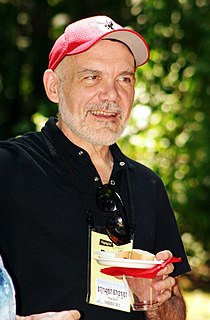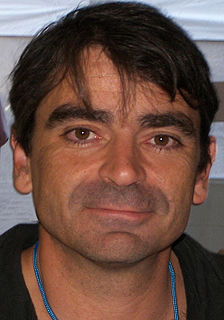A Quote by Alexandra Fuller
Being a writer but also having been raised the way I was, I tend to turn to books for answers.
Related Quotes
The fact remains that books that really put gay people in the center, and especially books that do so in a way that is sexually explicit, tend not to get a great deal of mainstream attention: they don't tend to sell well, and they don't tend to win major awards. This makes the occasional exception, like Alan Hollinghurst, all the more remarkable.
The most difficult thing about living as a writer is precisely 'having to write.' Pretending to be a writer is easy. Living freely, reading many books, going on frequent trips, cultivating minor eccentricities... but genuinely being a writer is difficult, because you have to write something that will convince both yourself and readers.
The wish to disappear sends many travelers away. If you are thoroughly sick of being kept waiting at home or at work, travel is perfect: let other people wait for a change. Travel is a sort of revenge for having been put on hold, or having to leave messages on answering machines, not knowing your party's extension, being kept waiting all your working life - the homebound writer's irritants. But also being kept waiting is the human conditon.
When I first decided I wanted to be a writer, when I was 10, 11 years old, the books that I loved obviously and openly fit that description: They came with maps and glossaries and timelines - books like Lord Of The Rings, Dune, The Chronicles Of Narnia. I imagined that's what being a writer was: You invented a world, and you did it in a very detailed way, and you told stories that were set in that world.
One of the advantages of having gone to Penn State was having had a scholar for a mentor - Philip Young. Also, a professional writer named Philip Klass taught there. He was a science fiction writer whose pseudonym was William Tenn. As a professional writer, he brought wisdom to teaching because he'd done it for a living.



































